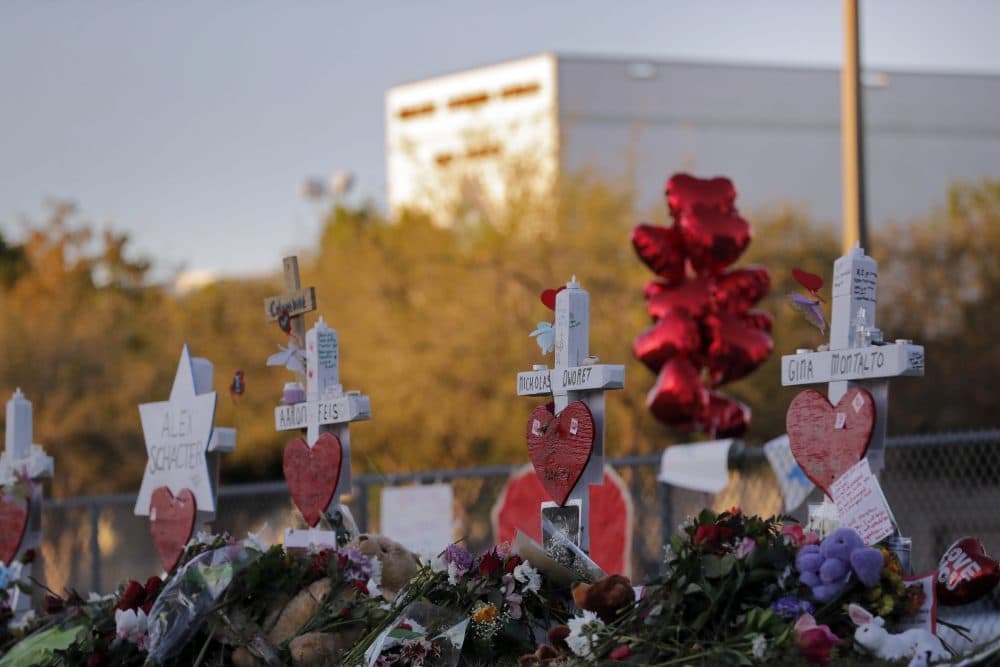Advertisement
'Since Parkland': The Importance Of Local Journalism Collaboration

In one year since Parkland, more than 1,000 young people have died in gun violence. We talk to the reporters who counted the numbers and tell the stories in a collaborative journalism project from McClatchy and The Trace called "Since Parkland."
McClatchy’s East Region editor, Kristin Roberts, contributed a short essay to On Point about the importance of local journalism outlets working together to report on the nationwide impact of gun violence.
- Visit the "Since Parkland" series, a partnership between McClatchy and The Trace
This is why local news matters
By Kristin Roberts, McClatchy East Region editor
Parkland traumatized South Florida. And for a moment, it felt like an event so heart wrenching and terrifying that it would traumatize people nationwide.
But that moment passed. Our colleagues at national news organizations moved on to other important issues and Parkland remained a story about local students and parents, local schools and teachers, local law enforcement and lawmakers.
It wasn’t the only one. In cities as far apart as Boston and Macon, reporters are regularly assigned stories about local crime, and they write the sad stories of children and teens who are the victims of gun violence.
As news organizations, it’s our responsibility to throw reporters, videographers and photographers at a breaking story about the safety and security of our communities. It’s also our responsibility to lift up and remember that often, the story isn’t only this
one horrifying event; it’s the accumulation of horrifying events that is the tragedy.
That’s what happened here. The 30 news organizations that together make McClatchy stretch from Miami to Charlotte, Kansas City and on to Sacramento. We work closely together — with senior editors sharing strategy and resources and beat reporters sharing ideas and even sources. And it’s because of collaboration within that network that we are able to stitch all of these local deaths together to reveal a story that is relevant nationwide.
Without reporters in cities and towns around America, and without organizations that tie them together, who would know that the death in Boston of Fausto Sosa had anything in common with Jeremiah Ascencio in California or Terale Claridy-Vaught in North Carolina. And without the reach of a news company such as McClatchy, who could put these facts before this many people, simultaneously, online and in print.
That’s the impact of local reporting. That’s the value of local news.
From the Miami Herald to the Washington D.C. Bureau, Regional Editor Kristin Roberts is responsible for the East Region newsrooms serving millions of readers across multiple platforms owned by McClatchy.